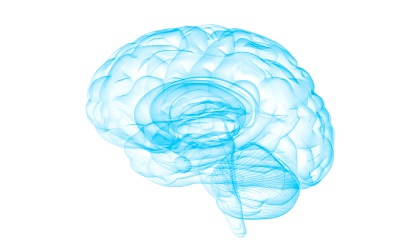How Can B Vitamins Protect You from Brain Shrinkage?
A rapidly shrinking brain is one of the signs that your wellness is at a raised risk for Alzheimer’s. However, if you take B vitamins, you can reduce this shrinkage by 90%. This is according to a new study, published May 20th 2013 in the journal Proceedings of the National Academy of Sciences, which found that the wellbeing of those who took B vitamins was almost entirely protected from the brain shrinkage suffered by those who only received a placebo pill.
Alzheimer’s typically destroys areas of your brain that control how you learn, remember and organise your thoughts. However, the areas of the brain that were protected from damage were almost exactly the same as those covered by the “Alzheimer’s footprint”. ‘I’ve never seen results from brain scans showing this level of protection,’ says Paul Thompson, professor of neurology and head of the Imaging Genetics Centre at UCLA School of Medicine, California – which has the largest database of brain scans in the world. ‘We study the brain effects of all sorts of lifestyle changes — alcohol reduction, exercising more, learning to handle stress, weight loss — and a good result would be a 25% reduction in shrinkage.’
So why are B vitamins so effective at preventing brain shrinkage, and its associated memory problems? Professor Teodoro Bottiglieri Baylor, at the Institute of Metabolic Disease in Dallas, Texas, explains, ‘The link between brain deterioration — memory loss, cognitive deficits — and B vitamin deficiency is standard neurology textbook stuff. You get it with various disorders that prevent B vitamins functioning properly, such as severe alcoholism and pernicious anaemia.’
Aside from finding that the vitamins reduced shrinkage across the whole brain compared with the brains of the people taking a placebo pill, another study from the University of Oxford noted that B vitamins only benefited people who had a high homocysteine level. A healthy level is said to be between about seven and ten, but these people had a level of 13 or more. Lead researcher on the trial David Smith, professor emeritus of pharmacology at Oxford, commented, ‘It was a useful finding. It showed you’ll only benefit from the vitamins if your homocysteine level is high, but it also told us that when it rises above a healthy level it can damage brain cells.’
Yet, Dr Siobhain Quinn, a psychiatrist specialising in older mental patients at St Peter’s Hospital, in Chertsey, Surrey, noted, ‘Most GPs are not very familiar with homocysteine risks, and it’s not a standard test, although you can get it done privately. However, testing for B12 is quite common in the elderly and it is standard practice to give tablets or injections if it is too low. So that could be a way of getting treatment, but probably not in the high doses used in the Oxford trial.’


Comments are closed.